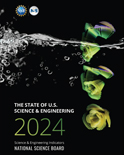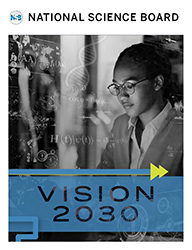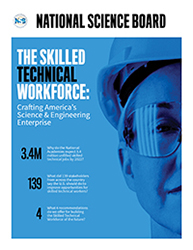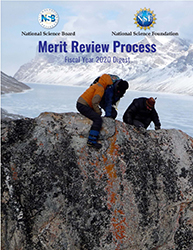Media Advisory 08-031
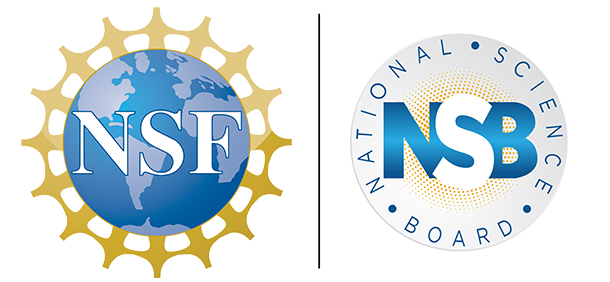
National Science Board Catalyzes Scientific Analysis of Sustainable Energy Alternatives
Third roundtable discussion to be held on September 4 at UC Berkeley
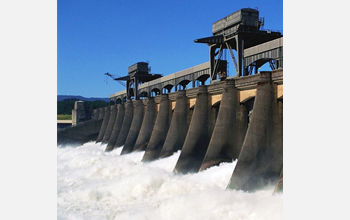
Picture of a dam illustrating hydropower. (Credit and Larger Version)
September 2, 2008
View a video interview with Dan Arvizu and Jon Strauss, cochairs of the National Science Board's Task Force on Sustainable Energy.
The National Science Board Task Force on Sustainable Energy will assemble for its third in a series of three roundtable discussions on science and engineering (S&E) challenges related to the development of sustainable energy on Thursday, September 4, 2008, from 8 a.m. to 5 p.m. at Clark Kerr Campus Conference Center at the University of California at Berkeley. The discussions are open to the public and will focus on the following themes:
- Science and engineering policy--energy, environment and economics
- Regulatory environment for sustainable energy research
- High performance green buildings and the federal research and development agenda for Net Zero Energy
- Public awareness and appreciation for the urgent need
Established in October 2007, the Task Force is charged with examining the role of the U.S. government in addressing S&E challenges related to the development of sustainable energy, and providing recommendations to the President and Congress regarding a nationally coordinated S&E research and education initiative on sustainable energy with specific guidance on the role of the National Science Foundation in this initiative. In these roundtable discussions, the Task Force aims to meet with various stakeholders to obtain diverse perspectives on these challenges for sustainable energy.
| What: | Task Force on Sustainable Energy, Third Roundtable Discussion: Science Engineering, and Education Challenges Related to the Development of Sustainable Energy |
| Who: | Stakeholders in the public and private sectors |
| When: | Thursday, September 4, 2008, 8 a.m. to 5 p.m. |
| Where: | University of California at Berkeley Clark Kerr Campus Conference Center 2601 Warring Street Berkeley, Calif. |
HIGHLIGHTS: PRESENTATIONS TO BE FOLLOWED BY FACILITATED DISCUSSIONS:
| 8:30 a.m. | What Roles Can Federal and State Governments Play in Promoting Sustainable Energy? Mark Levine; Staff Senior Scientist and Leader of China Energy Group, Lawrence Berkeley National Laboratory |
| 9:30 a.m. | Energy, Environment, Economics, and S&E Policy Mark Brown, Associate Professor, Department of Environmental Engineering Sciences, University of Florida |
| 10:55 a.m. | Financing, Forcasting, Modeling and Trajectory in Renewable Energy: A Strategic Perspective Vinod Khosla, Founder and Partner, Khosla Ventures |
| 11:20 p.m. | Federal Support for Sustainable Energy Research Daniel Kammen, Class of 1935 Distinguished Professor of Energy, University of California Berkeley and Founding Director, Renewable and Appropriate Energy Laboratory |
| 12:40 p.m. | Luncheon Presentation by Net Zero Energy High Performance Green Buildings: Rationale and Vision for the Federal R & D Agenda S. Shyam Sunder, Director, Building and Fire Research Laboratory, National Institute of Standards and Technology, U.S. Department of Commerce |
| 1:55 p.m. | Advancing Public Awareness of Topics in Sustainable Energy Eric Smith, Professor, Department of Political Science and Environment Studies Program, University of California Santa Barbara |
| 2:20 p.m. | NSF's Current and Potential Sustainable Energy Initiatives in Formal and Informal Education and in Workforce Development Al DeSena, Program Director, Division of Research on Learning Formal and Informal Settings, Education and Human Resources Directorate, National Science Foundation |
| 4 p.m. | Current Sustainable Energy Initiatives in NSF's Directorate for Mathematical and Physical Sciences (MPS) Tony Chan, Assistant Director, MPS, National Science Foundation |
A FULL AGENDA AND PARTICIPANT LIST MAY BE OBTAINED AT:
http://www.nsf.gov/nsb/committees/tskforce_se.jsp
Since the first Sustainable Energy Task Force roundtable in February 2008, existing fossil energy supplies have become even more strained, with predicted economic and geopolitical consequences. The United States is in dire need of alternative pathways. Many technology options exist that can contribute to an energy sustainable and environmentally friendlier future, including energy efficient techniques, non-emitting power generation, biofuels, forest and land management and carbon dioxide capture and storage. A challenge of this scale needs to be addressed at the global level. In the U.S. an appropriate strategy will be required across federal, state and local governments, as well as across businesses, non-profit organizations and other stakeholders. S&E will be critically important for success in this area. The National Science Board is poised to make recommendations regarding the structure of the S&E research and education enterprise needed to respond to these challenges and expects to give specific guidance to the NSF so that it may play a leadership role by ensuring that its portfolio matches the scale of the challenge. Beginning with a series of roundtable discussions, the activities of the Task Force on Sustainable Energy will elucidate key issues that may be addressed as NSF charts its role in bringing about a stable and sustainable energy future.
Journalists interested in attending and covering the third roundtable discussion should contact Lisa-Joy Zgorski, NSF at lisajoy@nsf.gov, 703-292-8311 or Bob Sanders, UC Berkeley Office of Media Relations at rlsanders@berkeley.edu, 510-643-6998.
Members of the public are welcome to attend this roundtable discussion, but those who plan to drive to the Clark Kerr Campus Conference Center will need to plan in advance for parking.
-NSF-
Media Contacts
Lisa-Joy Zgorski, NSF, (703) 292-8311, lzgorski@nsf.govBob Sanders, UC Berkeley Office of Media Relations, (510) 643-6998, rlsanders@berkeley.edu
Related Websites
National Science Board: http://www.nsf.gov/nsb
Roundable 2: Science and Engineering (S&E) Challenges: http://www.nsf.gov/nsb/meetings/2008/0619/se_agenda.pdf
Roundtable 1: Science and Engineering (S&E) Challenges: http://www.nsf.gov/nsb/meetings/2008/0208/se_agenda.pdf
National Science Board Task Force on Sustainable Energy Webpage: http://www.nsf.gov/nsb/committees/tskforce_se.jsp
Useful NSB Web Sites:
Home Page: http://www.nsf.gov/nsb
Media Contact: http://www.nsf.gov/staff/staff_bio.jsp?lan=nlymn&org=NSF
News: http://www.nsf.gov/nsb/news
Meetings: http://www.nsf.gov/nsb/meetings
Publications: http://www.nsf.gov/nsb/publications
Facebook: https://www.facebook.com/NationalScienceBoard
Twitter: Twitter: https://twitter.com/intent/user?screen_name=NSF_NSB
YouTube: https://www.youtube.com/channel/UCkrHRzuGSrPp2haQs0T_Pww
To view PDF documents, please download Adobe Acrobat Reader.
